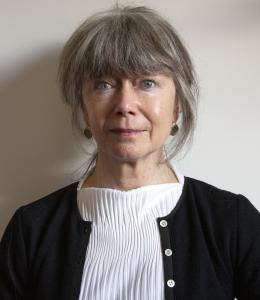
Nicola Dahrendorf
Nominated Fellow, November 2021 - February 2022
Independent researcher
Nicola Dahrendorf is a practitioner with over thirty years’ experience in conflict and post-war settings with INGOs, the United Nations, the UK government and in an academic capacity. Her professional focus has been on peace building and conflict resolution, protection of civilians and child protection, sexual and gender-based violence and on security sector and justice reform in fragile environments. More recently she has been engaged in providing support to community-based mediation and exploring the role of artistic practice in conflict environments and peace processes for the Swiss FDFA. Her past UN work involved six peacekeeping operations in senior management positions. She has worked at UNICEF HQ as Chief of Humanitarian Policy and Advocacy and with UNHCR for seven years on refugee protection. She has carried out assignments for the Norwegian Refugee Council as a Senior Protection Adviser, including in Zimbabwe (2021), with the UN Relief and Works Agency for Palestinian Refugees (UNRWA) (2019/2020) and Somalia (2017). With the Swiss Development Corporation she worked on a study on the integration of protection and human rights into the humanitarian and development nexus in Mali (2019). For the UK Government Stabilisation Unit and DFID Conflict and Humanitarian Affairs Department (between 2010-17) she worked in Kenya, Nigeria, DRC, South Sudan, Somalia and Nepal. She has worked in academia at King’s College London and was a Visiting Research Fellow at Birkbeck College, University of London. Fluent in English, French and German, her academic background is in Social Anthropology and Law: Masters Social Anthropology (Cambridge, UK), Diploma in Law and Bar (London), LLM Law and Development (School of Oriental and African Studies, London).
Project Title: Perspectives on today’s challenges and opportunities for peace mediation
Based on my involvement in mediation practice at both at the community level and in support of political mediation processes at a decision-making level, I co-edited and coordinated a publication on Arts in Mediation (to be published February 2022), a multi-year project funded by the Swiss Ministry of Foreign Affairs that explores how arts practice could assist in unblocking mediation processes. During my time at IASH, I propose to weave together my research and experience based on mediation in conflict environments – with particular focus on the gap between rhetoric and reality and the long-held recognition of bringing women practitioners into the mediation space. Women and community-based mediators working in both formal and informal processes are already using a wide variety of culturally relevant and arts-based tools to connect different worldviews. I am also reviewing the effects of the rapidly shifting social, economic, political and security environment for political mediation.
